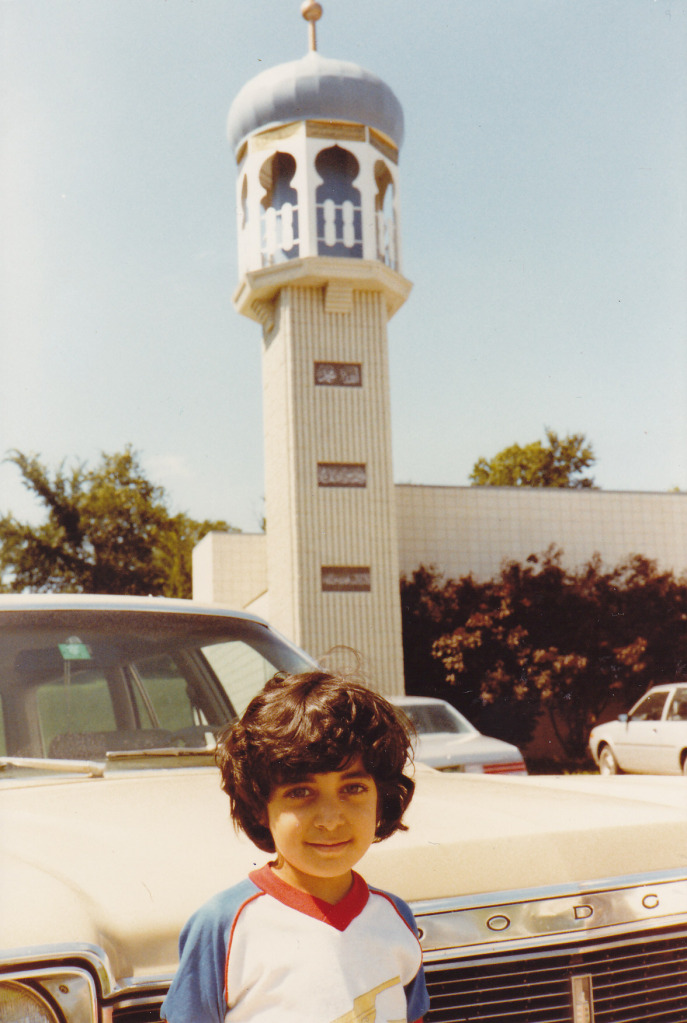 Published November 25, 2013 in The National, Abu-Dhabi, By David D’Arcy
Published November 25, 2013 in The National, Abu-Dhabi, By David D’Arcy
American Arab is full of troubling images. None more so than close-ups of Usama Alshaibi with bloody bruises on his face. Alshaibi had stumbled into a house in Fairfield, Iowa, the mid-western town where he lived in 2010, thinking that he’d been invited to a party inside. For some young men there, it wasn’t so much that he was an intruder, but that the man named Usama was an Arab. The attackers were never prosecuted. It would have been Alshaibi’s word against theirs.
Alshaibi’s new film made its world premiere on Friday at the International Documentary Festival Amsterdam (IDFA), which runs until December 1. The director, now 44, narrates the story of his family’s rough landing in America from Iraq. Usama’s mother is Palestinian, his father Iraqi. He and his siblings, one of whom was born in the US, grew up speaking English.
The independent film, budgeted at US$200,000 (Dh734,000), is anything but an anti-American screed. Alshaibi and his US-born younger brother loved breakdancing and baseball. He and his sisters, born in Baghdad, chose to become US citizens and they all live there. But ignorance about the Middle East after the 9/11 attacks and a general resentment towards Islam made it a challenge to be an Arab there, said Alshaibi, whose younger brother died of a drug overdose. “He never found his way,” the director said.
“Especially when you come from war, the thinking is that you bring your children here to be safe, because they’re not in war any more. It’s not something that you expect, that your child will get into drugs and trouble. It’s part of what can happen in a country where you can do everything that you want,” he noted.
In the documentary, three girls whose family recently fled Iraq tell of being stigmatised whenever Osama bin Laden is mentioned, although they barely know who he was. A punk rocker from the band Al-Thawra, Marwan Kamel, ignores prejudice, yet his tearful Polish mother (his father is Syrian) talks of her fears when the phone rang with threats to her family. A Palestinian woman, Amal Abusumayah, recalls an angry American trying to remove her hijab at a supermarket. She took the case to court as a hate crime, and won.
For Alshaibi, the name Usama was an instant epithet after 9/11. “On September 12, I received an anonymous email that said: ‘The only good Arab is a dead Arab.’ You look out the window when you get something like that. You have an anxiety about yourself and what’s going to happen to you and your family.”
Taking another name was out of the question. “Asian people would do it and Persian people would do it. Even in Chicago, at a place where I went for coffee in the morning, the guy who ran it was an Arab and he wouldn’t even call me Usama. He called me ‘Sam’. Here was an Arab self-censoring.”
“There’s been a lot of pressure to change my name after 9/11, but I hold on to it. I refuse to surrender it,” he said. “Life could be easier.”
Life indeed could be easier, Alshaibi learnt on a trip home to Iraq after the outbreak of the second Gulf War. He documented that journey in the film Nice Bombs (2006). Relatives in Baghdad welcomed him warmly, speaking English for the camera to the young man and his American wife. Early in the US occupation, their feelings were already turning against US soldiers, whose common view of the Iraqis in the film was that “we brought them freedom, but they don’t understand it”. The young couple returned to the US – confused, but eager to escape the constant gunfire.
“I couldn’t have made American Arab without making Nice Bombs first,” Alshaibi noted.
Nice Bombs brought him to the attention of Kartemquin Films, the Chicago producers of the now-classic documentary, Hoop Dreams (1994), which followed two African-American teenagers for five years in their pursuit of basketball stardom. Both young men fell far short of those dreams, but the film became a huge success.
Besides American Arab, Kartenquin also produced The Trials of Muhammad Ali, which willl be screened at IDFA in Amsterdam. This is a documentary set in the racially tense 1960s about the boxer’s conversion to Islam and refusal to serve in the Vietnam War. At the time, the name Muhammad stigmatised the heavyweight champion.
The rather disturbing American Arab points to a happier sequel, with Usama Alshaibi and his wife naming their newborn daughter Muneera, which means bright or shining, towards the film’s end.
source: http://www.thenational.ae/arts-culture/film/american-arab-at-the-international-documentary-festival